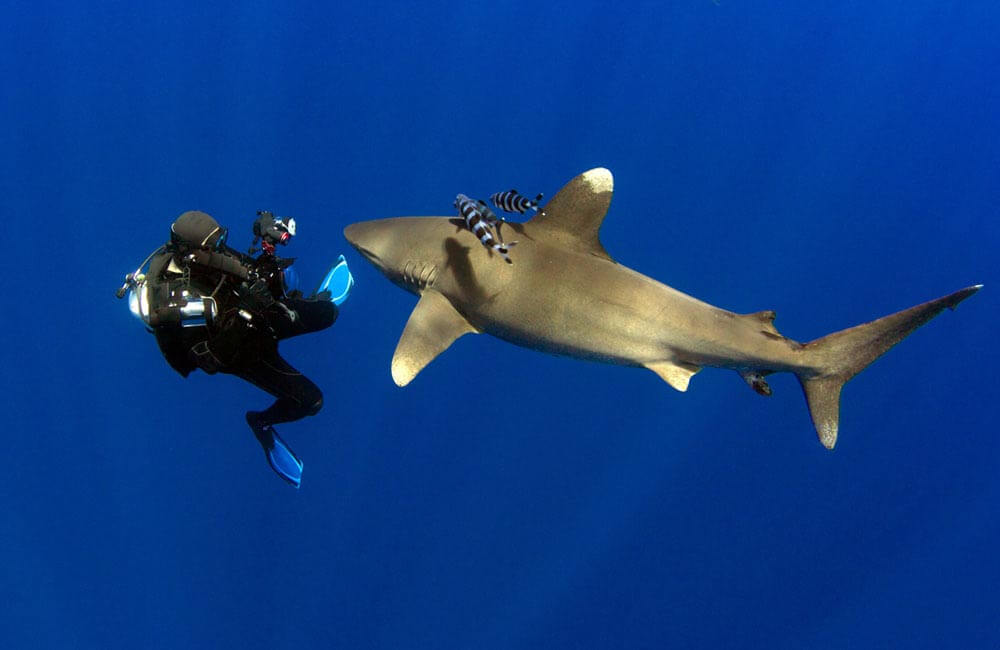
The Egyptian Red Sea’s Brothers Islands have reopened for scuba diving after a three-and-a-half month hiatus.
The Brothers Islands, which are only accessible by liveaboard, were closed to divers in late December after four biting incidents by oceanic whitetip sharks were reported. The most serious incident resulted in ‘severe tissue loss’ to a diver’s calf muscle. The others involved hospital treatment for lacerations, and one a damaged BCD. Changes in the sharks’ behaviour are thought to have been provoked by both deliberate and accidental feeding of the sharks, illegal fishing activity in the surrounding area, increased diver pressure, and a lack of awareness as to how to safely interact with the sharks.
The islands were closed for scuba diving to try to return the sharks to a more natural behaviour – hunting and feeding in the open sea, rather than congregating near dive boats. During the closure, all dive guides and liveaboard operators were required by the Chamber of Diving and Watersports (CDWS) to undertake a mandatory shark awareness course. The training programme was conducted by biologist Elke Bojanowski, blue o Two dive guide and founder of the Red Sea Sharks project.

In a statement released by the CDWS on 15 March, a list of new rules to be followed by liveaboard operators has been issued:
‘All dive operations CDWS members have to abide to the provisions mentioned in the Governor decree, as follows: 1. It is not allowed to stay overnight in Brother Islands. The implementation of diving activities will be only from 6AM till 4PM after which all boats should leave.2. The daily maximum capacity of boats on the brother Islands are 18. 12 boats for the Big Brother and 6 for the Small Brother and only during the timing mentioned in item no. 1.3. For safari boats to apply for sailing permit to visit Brother Islands, first they have to get a coordination record with CDWS through the following link http://cdws.travel/brothers-schedule to be able to present it to the coast guard office of Red Sea governorate.4. It is totally forbidden to dump any organic waste in the area of Brother Islands. It should be dumped in open water by a sufficient distance for at least 5 nautical miles. Please abide to all that is mentioned in Red Sea governor decree to avoid penalties.’
Any change in the shark’s behaviour during the monitoring process has not been officially released as yet. The effect of the new rules will undoubtedly be monitored. Reducing the number of boats in the area may lessen diver pressure somewhat, although a limit of 18 boats still means that several hundred divers per day will visit each island at peak times. Of more significance is preventing the boats from overnighting at the Brothers. Liveaboards will typically sail overnight to the islands, and – depending on the itinerary – will spend an entire day at one before mooring overnight and visiting the other. Although it is already illegal to do so, organic waste such as kitchen scraps is more likely to be discarded into the water during this time. Oceanic whitetips are scavengers by day and hunters by night, so removing the boats and a potential food source may cause the sharks to maintain a more ‘normal’ behavioural pattern during the night. It does mean, however, that itineraries involving the Brothers may have to be shortened to a single day, as there is nowhere nearby for the boats to moor. Travelling back and forth each day would require a huge amount of diesel and therefore be financially and environmentally prohibitive.
Updates will be provided as and when further information is forthcoming.


